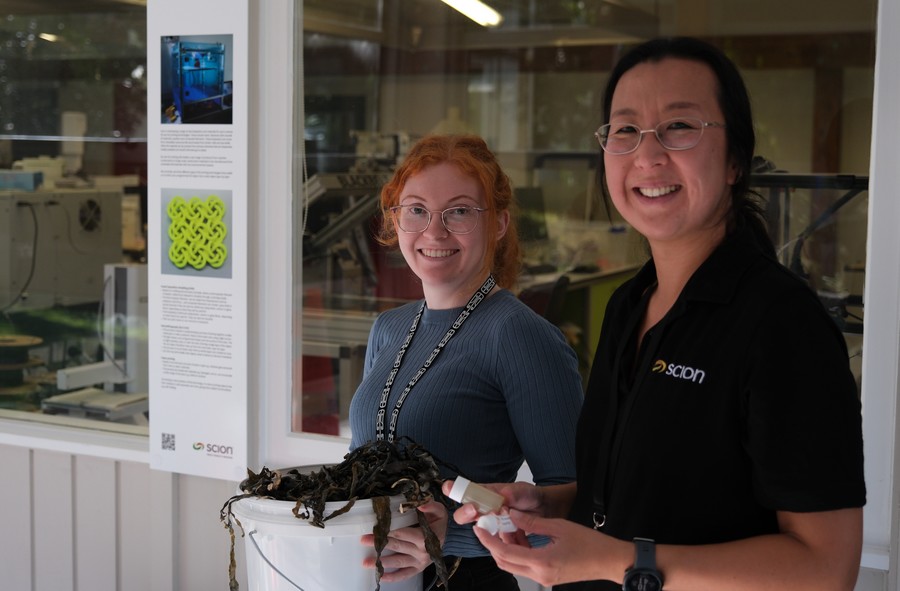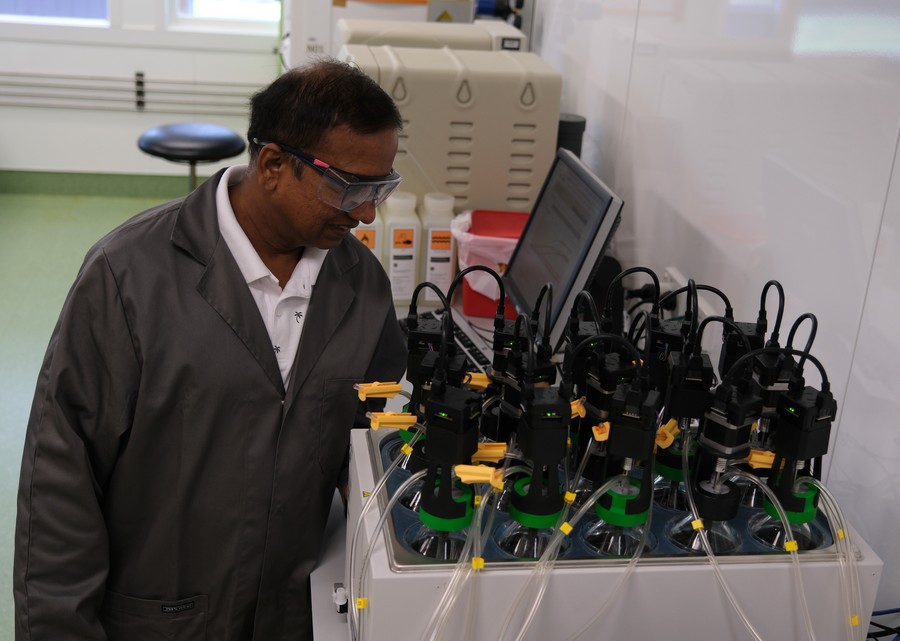New projects strengthen science links between France and New Zealand
18 March 2024
The connection between Scion and French research organisation INRAE has strengthened even further with the approval of four collaborative research projects that will see the exchange of knowledge and scientists.
The Scion projects are being done under a multi-year co-operation agreement between INRAE, France’s National Research Institute for Agriculture, Food and Environment, and Science New Zealand on behalf of the Crown Research Institutes.

Scion’s general manager science services Marie-Joo Le Guen says the projects reinforce the partnership Scion already has with INRAE spanning more than two decades. In April last year, the research institutes signed a formal agreement to create the Associated International Laboratory creating fresh opportunities to extend Scion’s research into biobased products.
Le Guen says the work “enables the science collaboration vision between France and New Zealand” and is a new opportunity to foster international research.
“It supports joint-proposals such as Horizon Europe and other potential activities such as sabbatical, staff exchange, PhD supervision ... it is about widening our research ecosystem.”
During the collaboration scientists, including a PhD student, will be exchanged between the two countries building the relationship and sharing knowledge.
Scion’s projects are among 12 involving 32 scientists under a Joint Linkage Call Agreement between INRAE and Science New Zealand. The projects will last at least a year with exchanges of up to one month. They are expected to lead to longer-lasting joint activity.
Scion’s projects explore:
- Developing hydrogels from cellulose for medical uses, like healing bandages, with PhD candidates investigating various algae types from both countries.
- Fostering long-term collaboration on diverse forest plantations, as monoculture forests face greater risks from natural events and economic downturns. This involves setting up trial mixed plantations in urban and business forests across New Zealand and France.
- Sharing insights on somatic embryogenesis (the process of coaxing immature embryos into cell masses). Scion and INRAE's BioForA are addressing the leap from laboratory studies to field applications, exchanging knowledge on germination, adaptation protocols, and embryo quality checks to navigate these hurdles.
- Combining efforts to advance groundbreaking research in biohydrogen production, exploring its potential in various applications and its role in reaching net-zero emissions by 2050.

Science New Zealand Chief Executive Anthony Scott says the Joint Linkage initiative significantly boosts French-New Zealand scientific co-operation.
“INRAE is an excellent partner to CRIs, given the calibre of its people, complementary areas of research and commitment to application of the science,” Scott said.
“Science needs to work locally, but with global partners, to address the world’s biggest challenges and opportunities.”
President and chief executive of INRAE Dr Philippe Mauguin, who co-signed the Agreements in Wellington in March 2023, said his organisation was delighted to work with New Zealand’s Crown Research Institutes.
“Like us, they are about excellence in science and its application. We, like the CRIs, foster innovation, provide expertise, and inform public policies.
“These exchanges will strengthen bilateral relationships and benefit the Pacific region and further afield.”
